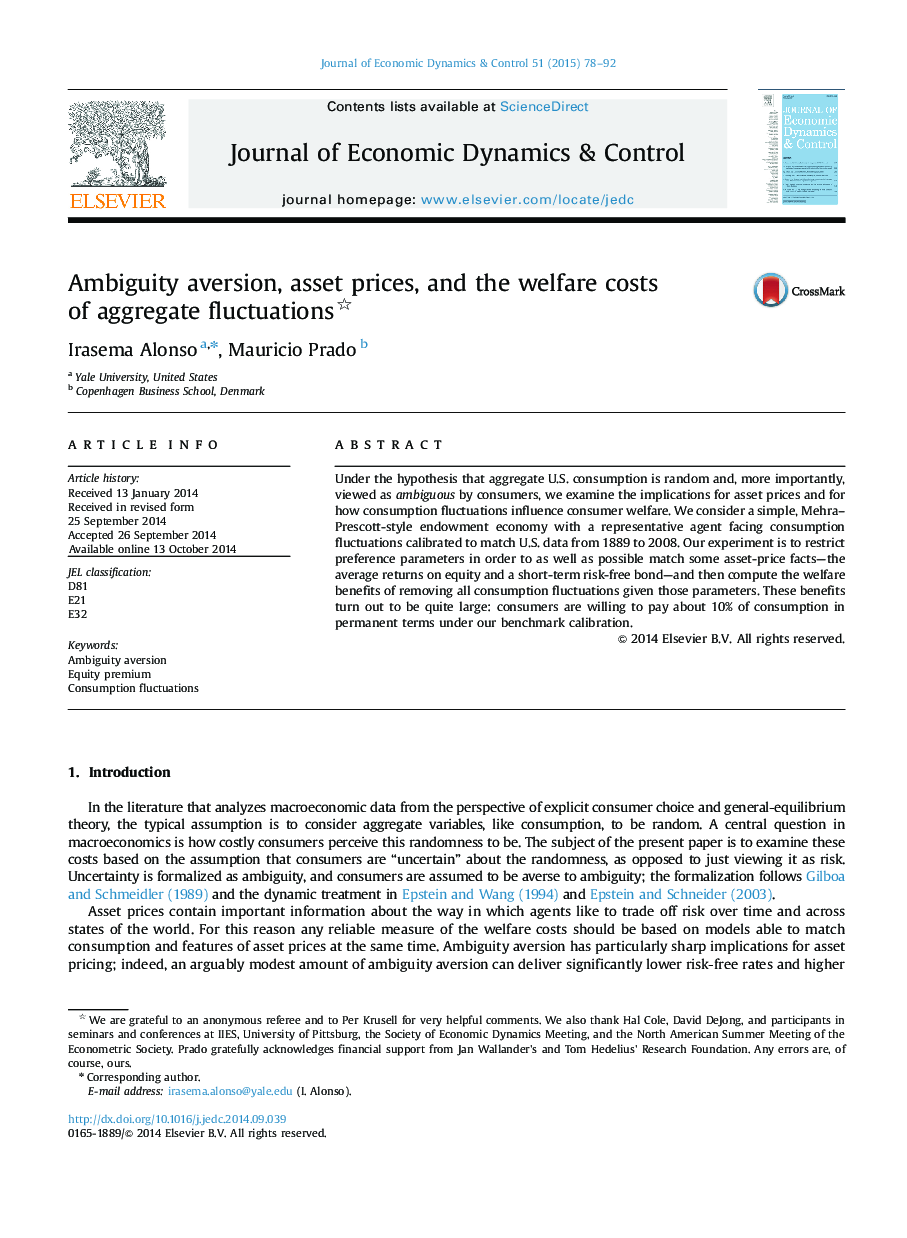| Article ID | Journal | Published Year | Pages | File Type |
|---|---|---|---|---|
| 5098354 | Journal of Economic Dynamics and Control | 2015 | 15 Pages |
Abstract
Under the hypothesis that aggregate U.S. consumption is random and, more importantly, viewed as ambiguous by consumers, we examine the implications for asset prices and for how consumption fluctuations influence consumer welfare. We consider a simple, Mehra-Prescott-style endowment economy with a representative agent facing consumption fluctuations calibrated to match U.S. data from 1889 to 2008. Our experiment is to restrict preference parameters in order to as well as possible match some asset-price facts-the average returns on equity and a short-term risk-free bond-and then compute the welfare benefits of removing all consumption fluctuations given those parameters. These benefits turn out to be quite large: consumers are willing to pay about 10% of consumption in permanent terms under our benchmark calibration.
Related Topics
Physical Sciences and Engineering
Mathematics
Control and Optimization
Authors
Irasema Alonso, Mauricio Prado,
